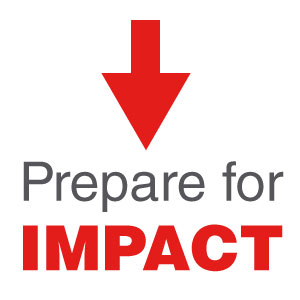
The Improving Medicare Post-Acute Care Transformation (IMPACT) Act signed by President Barack Obama on Oct. 6, 2014, directs the U.S. Department of Health and Human Services (HHS) to standardize patient assessment data, quality and resource use measures for PAC providers, including home health agencies (HHAs), skilled nursing facilities (SNFs), inpatient rehabilitation facilities (IRFs) and long-term care hospitals (LTCHs).
It is believed that the standardization of patient data across Post-Acute Care settings will allow HHS to compare quality across PAC settings, improve hospital and PAC discharge planning, and use this standardized data to reform PAC payments in the future.
The new law will:
- Require PAC providers to begin reporting standardized patient assessment data at times of admission and discharge by Oct. 1, 2018, for SNFs, IRFs and LTCHs and by Jan. 1, 2019, for HHAs.
- Require new quality measures on domains beginning Oct. 1, 2016, through Jan. 1, 2019, including functional status, skin integrity, medication reconciliation, incidence of major falls, and patient preference regarding treatment and discharge.
- Require resource use measures by Oct. 1, 2016, including Medicare spending per beneficiary, discharge to community and hospitalization rates of potentially preventable readmissions.
- Require the secretary of HHS to provide confidential feedback reports to providers. The secretary will make PAC performance available to the public in future years.
- Require MedPAC and HHS to study alternative PAC payment models, with reports due to Congress in 2016 for MedPAC and 2021–2022 for HHS.
- Require the secretary to develop processes using data to assist providers and beneficiaries with discharge planning from inpatient or PAC settings.
CMS and other entities have worked together to strategically identify an efficacious tool for collecting quality measures in PAC settings. The CARE (Continuity Assessment and Record Evaluation) Item Set is the frontrunner as the tool for collecting data on self-care and mobility. The CARE Item Set was developed by a PAC Outcomes Workgroup being led by Dr. David Gifford, with members from the National Association for Support of Long Term Care (NASL), American Health Care Association (AHCA), American Physical Therapy Association (APTA), American Occupational Therapy Association (AOTA) and others. Extensive research has been collected on the tool using over 12,000 cases. There is overwhelming support for this tool.
The tool for measuring swallowing, cognition and communication has not yet been determined by the PAC Outcomes Work Group. The National Outcomes Measurement System (NOMS), developed by the American Speech-Language Hearing Association (ASHA), is felt to be the frontrunner at this time.
Optima Health Care Solutions (Optima HCS), the maker of our rehab software, Rehab Optima, has been selected to serve as a national repository for the collection of data from the CARE Item Set, which will be used to collect data regarding self-care and mobility at admission and discharge. Optima HCS has also worked with the ASHA and has been authorized to build NOMS into the documentation for use by our SLPs certified in NOMS. Ensign has been selected as one of three organizations nationally to test the external NOMS collection site in Optima. As an organization, greater than 50 percent of our therapists have been certified in NOMS and/or CARE and we are collecting data on our Post-Acute Care admissions. We are also beginning to use the data to speak to our healthcare partners, including those affiliated with hospitals, home health agencies and outpatient treatment centers. By using CARE Item Set and NOMS to measure outcomes, our programs are preparing for the requirement to measure and improve quality of service delivery to our Skilled Nursing Facility rehabilitation patients.
The data collected during the CARE Item Set demonstrations completed by the PAC Outcomes Workgroup will be presented to the National Quality Forum on Nov. 7.
Read more information about CARE Item Set.
Read more information about ASHA NOMS.

